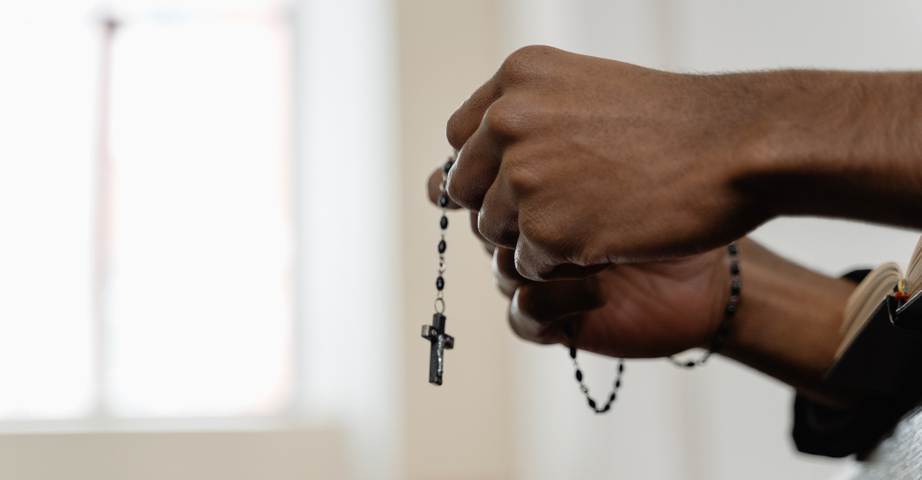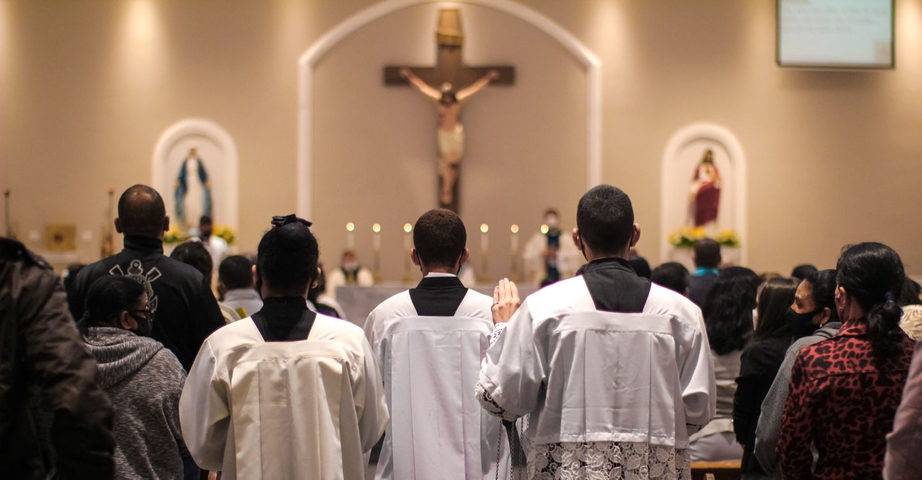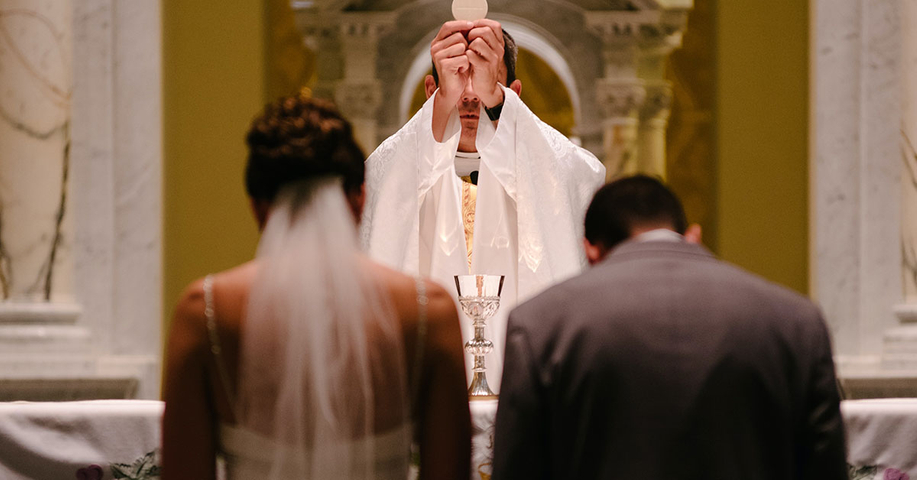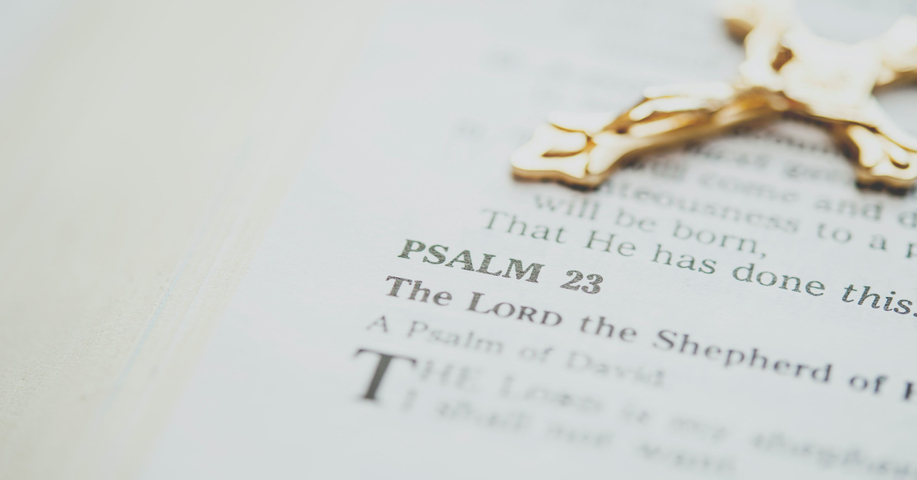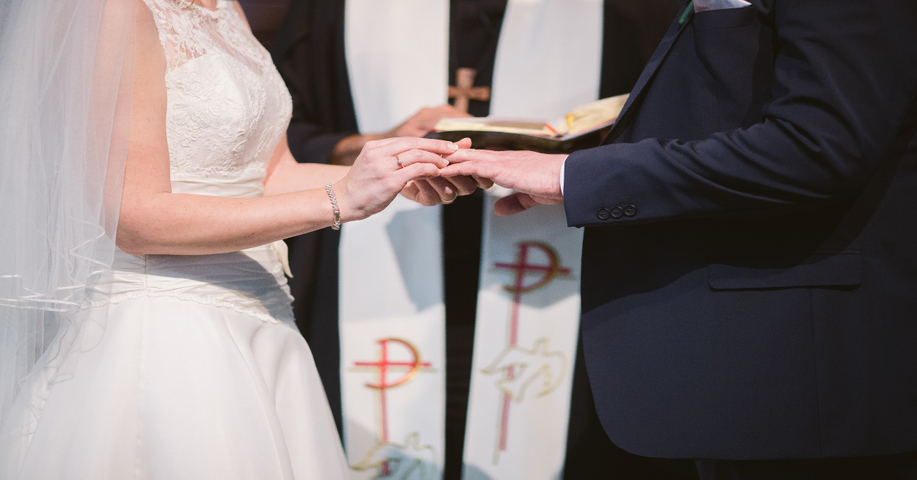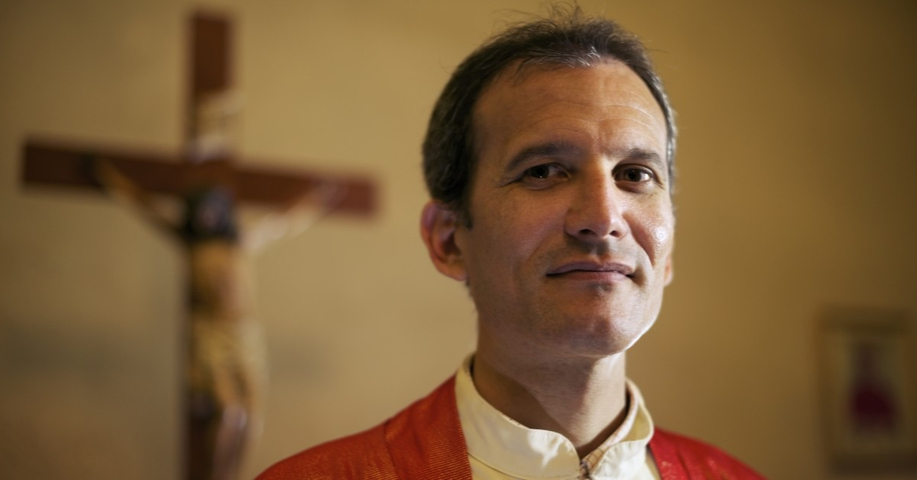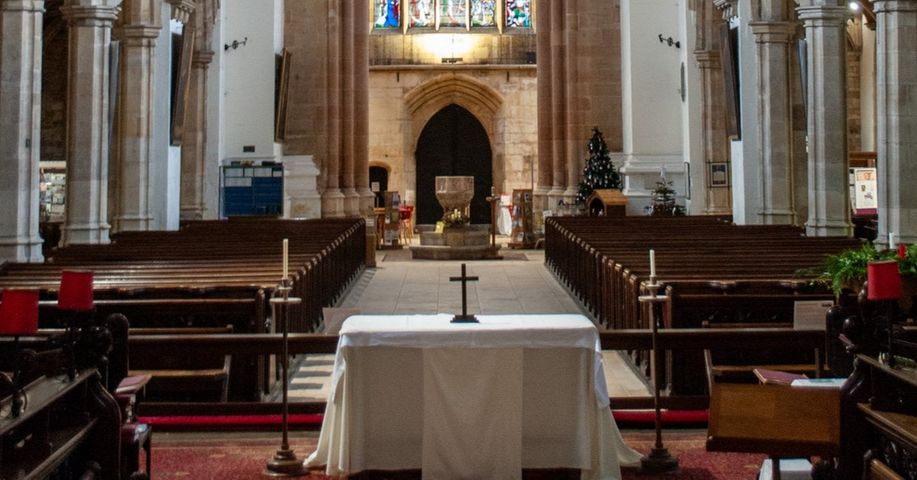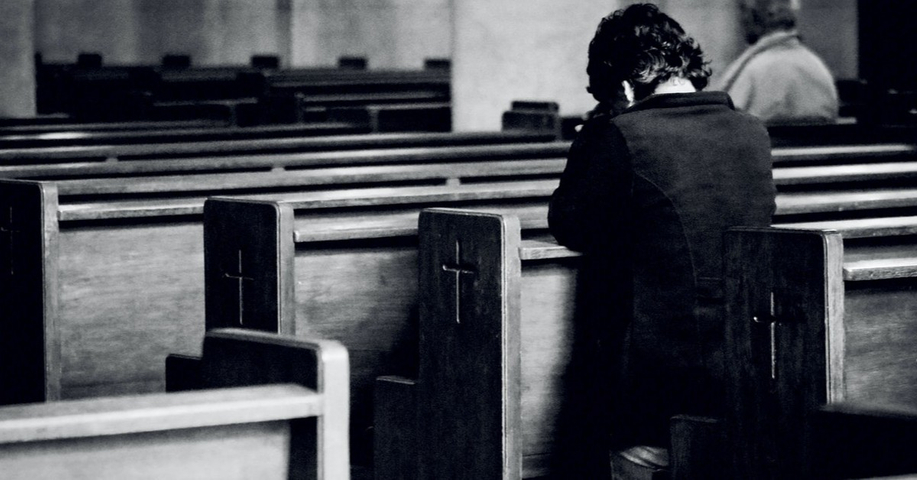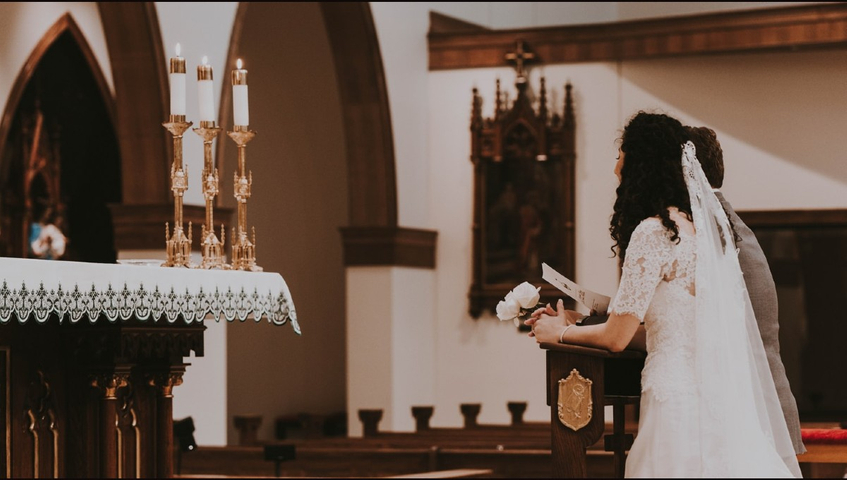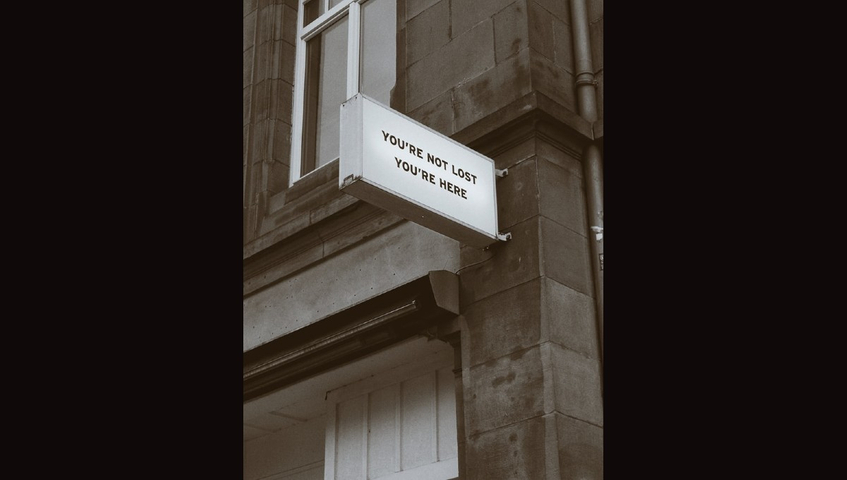Blog
Catholic Annulment Blog
Annulment vs. Divorce: Which is Right for Your Situation?
For many, the concepts of annulment and divorce can blur, leading to confusion about their meanings and implications. While both relate to the end of a marriage, they serve different purposes and follow distinct processes. Understanding these differences can guide you in navigating your personal situation more effectively.
moreWhat happens if a Catholic annulment is denied?
Receiving a denial for your Catholic annulment can be disheartening and confusing. It’s essential to understand what a denied annulment means and what options you have moving forward. In this article, we’ll outline the implications of a denial and the steps you can take to seek further resolution.
moreDoes a non Catholic marriage need to be annulled?
Many individuals wonder if a non-Catholic marriage requires an annulment, especially if they decide to marry within the Catholic faith later on. Understanding the Catholic Church’s perspective on marriage and annulment can clarify this complex issue. The answer isn't always straightforward, as each situation varies greatly.
moreIs Infidelity Grounds for Catholic Annulment?
Infidelity is a painful experience that can leave lasting emotional scars, often leading to feelings of betrayal, anger, and confusion. Many Catholics wonder if infidelity is grounds for annulment in the Catholic Church. While an annulment is often misunderstood as a divorce, it is important to clarify that an annulment declares a marriage null and void from the beginning. This means that the marriage was never valid in the eyes of the Church. Here’s how infidelity may play into the annulment process.
moreCan a Catholic Remarry Without an Annulment?
When you stand at the altar and exchange vows, your heart is filled with hope. You never expect your marriage to go off course or end. For Catholics, marriage is a sacrament, a lifelong commitment before God. But life can take unexpected turns, and sometimes, despite best efforts, a marriage may not work out.
At Catholic Annulment – Another Chance, we help individuals through the complex Catholic marriage annulment process. Our team of active and former church judges, along with expert canon lawyers, work with you to identify the legal grounds for annulment so your case is presented in the best possible manner. Seeking an annulment isn’t just a legal process—it’s also a spiritual journey. Here’s what you need to know about remarriage and annulment in the Catholic Church.
moreWhat Are the Steps in a Catholic Annulment?
The Catholic annulment process is both a legal and spiritual journey. Unlike a divorce, an annulment is a declaration that a marriage was never valid in the eyes of the Church. Catholic Annulment - Another Chance is dedicated to making this process both efficient and healing, with trained canon lawyers guiding individuals through each step. Below are the key steps involved in a Catholic annulment.
moreHow to Answer a Catholic Annulment Questionnaire
Going through a Catholic annulment process can be both challenging and emotionally taxing. One crucial aspect of this process is providing detailed and honest responses to the questionnaire. Understanding how to approach and respond to these inquiries can significantly impact the outcome of your case. Let's explore some key points on effectively answering the questionnaire with the expert guidance of Catholic Annulment - Another Chance.
moreThe Role of Forgiveness and Compassion in the Catholic Annulment Process
In the realm of Catholic annulment, the significance of forgiveness and compassion cannot be understated. At Another Chance Catholic Annulment, we recognize the pivotal role these elements play in supporting individuals through the annulment process and fostering emotional healing. Let's delve deeper into how forgiveness and compassion can positively impact the Catholic annulment journey toward resolution and peace.
moreSupporting Loved Ones Going Through Catholic Annulment: Dos and Don'ts
When a loved one is undergoing this process, offering support in the right way is crucial. Understanding the dos and don’ts can make a significant difference in how you assist them during this emotional journey. At Another Chance Catholic Annulment, we are a trusted resource for individuals navigating the delicate path of Catholic annulments. Keep reading to learn more about supporting your loved ones going through the journey of Catholic annulment.
moreNavigating the Emotional Journey of a Catholic Annulment: Self-Care Tips and Support
Going through a marriage annulment is a deeply personal and emotional journey. At Catholic Annulment – Another Chance, we understand the complexities involved in the annulment process. In this blog, we will explore the emotional impact of seeking a Catholic annulment, and provide tips on practicing self-care during the process.
moreFinding Healing and Closure: The Role of Catholic Annulments
Marriage represents a sacred covenant in the Catholic faith, embodying a bond grounded in love, commitment, and mutual respect. However, when the complexities of life strain this bond, and divorce ensues, individuals may find themselves seeking solace and resolution through the process of a Catholic annulment.
At Catholic Annulment - Another Chance, we offer individuals the opportunity to navigate the intricate journey of annulment with the assistance of experienced Catholic annulment attorneys. In this informative blog, we will delve deeply into the multifaceted aspects of Catholic annulments, exploring the historical context, theological underpinnings, legal intricacies, emotional implications, and the transformative power of healing and closure that annulments can provide to those facing challenging marital circumstances.
moreCommon Misconceptions About Catholic Annulments Debunked
When it comes to Catholic Annulments, there are numerous misconceptions that surround this often misunderstood process. However, it is important to separate fact from myth in order to fully understand the purpose and process of a Catholic Annulment. As a team of former church judges at Catholic Annulment Another Chance, we have encountered many of these misconceptions and are here to debunk them.
moreUnderstanding the Catholic Annulment Process: A Step-by-Step Guide
At Catholic Annulment - Another Chance, we fully comprehend the emotional and mental burden that individuals face when navigating the annulment process within the Catholic Church. We understand that it can be a deeply personal and challenging journey, filled with uncertainties and complexities. That's why our dedicated team is here to provide unwavering support and guidance throughout the entire process. We are committed to making this experience as efficient, compassionate, and spiritually healing as possible. In this blog, we will delve into a detailed step-by-step guide, aimed at enhancing your understanding of our Catholic annulment process while focusing on the crucial aspects of nullity of a marriage, Catholic Church annulment, and marriage annulment.
moreExploring the Grounds for a Catholic Annulment: Valid Reasons and Implications
In Catholicism, marriage is considered a sacred bond, between the couple and God. At Catholic Annulment - Another Chance, we acknowledge the instance when a marriage is deemed null and void. We are pursuing the process and investigation to locate where the six essential elements may have been ignored. Once the bond has been established as nullified, the Catholic Church may issue an annulment; the permission to remarry. However, an annulment is not considered in the same realm as divorce. Catholic marriage is not deemed as a legal contract. The process examines the bond as a whole to discern where any of the elements were neglected.
Read about the reasons for seeking an annulment and the implications for those involved. And get in contact with our lawyers, mediators, and annulment attorneys.
moreWhat is a “Defect of Form” Case?
When it comes to marriage and Catholic annulments, there are many different types of cases that can arise which make the marriage invalid. Keeping up with each of these can be complicated, which is why our team at Catholic Annulment - Another Chance is here to help. We know that going through any type of separation, whether it be a divorce or an annulment, is very emotional and stressful, but we are here to support you every step of the way. We’ll help break down your specific case in detail so you can clearly understand each element that’s necessary to successfully achieve an annulment. In this week’s blog post, we discuss a defect of form case and what it means for those involved.
Catholic Annulment - Another Chance specializes in Catholic annulments. We have the training, skills, experience, and knowledge to help ensure you are able to get an annulment, and we also aim to make the process as stress-free as possible for you. Whether you need help understanding how the Catholic annulment process works, identifying the legal grounds on which your marriage is invalid, finding the appropriate witness, or anything in between, we’ve got you covered. Read this week’s blog post to learn more about what a defect of form case is and reach out today to learn more about Catholic annulments.
moreWho Is Bound to the Form of Marriage?
In a Catholic marriage, certain parties are bound to the form of marriage in order for the union to be valid. However, understanding who is and isn’t bound to the form of marriage can sometimes be challenging, especially for those outside the Catholic faith. In this week’s Catholic Annulment - Another Chance blog post, we discuss who is bound to the form of marriage.
Catholic Annulment - Another Chance blog is here to help you through every step of your Catholic annulment. Whether you need help collecting documents and evidence, understanding the grounds for nullity, finding suitable witnesses, or anything in between, our team of current and former church judges has the knowledge, skills, and experience necessary to provide you with expert services. Read this week’s blog post to learn more about who is bound to the form of marriage and reach out to Catholic Annulment - Another Chance today to get help with the Catholic annulment process!
moreWhat Is an Intention Against the Sacramentality of Marriage?
The Catholic annulment process can be difficult to understand, as there are many grounds on which a marriage can be declared null, and lots of documents and paperwork needed to prove it. If you’re unfamiliar with the Catholic annulment process, but are looking into having your marriage annulled, it’s important to understand the intricacies and grounds for the annulment process, so you can ensure you’ve got sufficient information when your process begins. This week’s Catholic Annulment - Another Chance blog post discusses an important factor: the sacramentality of marriage and how it affects the Catholic annulment process.
Catholic Annulment - Another Chance is here to help you prepare your Catholic annulment case to ensure it runs smoothly and that you achieve your desired outcome. Our church judges have the experience necessary to help you get through the process by ensuring you have proper documentation, evidence, witnesses, and everything in between. Read this week’s blog post to learn more about an intention against the sacramentality of marriage and reach out to Catholic Annulment - Another Chance to begin your annulment process today!
moreCatholic Annulment v. Civil Annulment
The world of annulments can be complicated, especially if you have no experience in dealing with them. If you’re in the midst of applying for an annulment, you may not quite understand the nuances and purposes of each type, which are helpful so you can ensure you’ve got everything you need to make the process move faster. In this week’s Catholic Annulment - Another Chance blog post, we discuss civil annulments and Catholic annulments, and the grounds for each.
Catholic Annulment - Another Chance specializes in assisting clients throughout the Catholic annulment process. Our former and current church judges have the knowledge, skills, and experience necessary to help expedite the process as much as possible and make things as easy as we can for you and your former spouse. Read this week’s blog post to learn more about the difference between civil and Catholic annulments and contact Catholic Annulment- Another Chance for help with the religious annulment process today!
more5 Ways to Stay Positive After an Annulment
Going through any type of separation, whether it be a divorce, separation, or an annulment, can really take a toll on your mental and physical health. While the recovery can be tough, staying positive can help you start fresh and feel happier and better than ever! This week’s Catholic Annulment - Another Chance blog is here to provide you with some important tips about how to keep your head up after your Catholic annulment.
Catholic Annulment - Another Chance has what it takes to help you through the Catholic annulment process in an efficient and positive manner. We know that deciding to end a marriage is not an easy decision, which is why our church judges and staff will be there to support you every step of the way. Read this week’s blog post and reach out to us today to get started with your Catholic annulment process!
moreCatholic Annulment FAQs
When it comes to Catholic annulments, understanding the specifics can be a bit complicated. Not only is your marriage coming to an end, but you’re also in the midst of navigating all of the different rules, regulations, and processes that come with a Catholic annulment. This week’s Catholic Annulment - Another Chance blog is here to help answer some of the most commonly asked questions we see.
Catholic Annulment - Another Chance specializes in the Catholic annulment process. Our experienced church judges have the expertise and skills that it takes to help you achieve an annulment smoothly, with as little stress involved as possible. Read this week’s blog to get answers to your most pressing questions about Catholic annulments and contact us today to get started! If your question isn’t listed here, our professionals would be more than happy to assist you.
moreA Guide to Adultery and Catholic Annulment
Discovering that your spouse has been unfaithful can be absolutely devastating. You vowed to love each other and be faithful to each other until death, but now the person you thought you knew so well has completely betrayed you. So, what can you do?
You may be wondering whether you can get a Catholic annulment instead of a divorce when you learn your spouse has cheated. This week’s Catholic Annulment - Another Chance blog discusses if a Catholic can divorce for adultery and what other options are possible.
Catholic Annulment - Another Chance is a group of professionals made up of both current and former church judges who can provide you with the assistance you need to make your Catholic annulment process simple and stress-free. Read on to learn more about Catholic annulment in the case of adultery and contact Catholic Annulment Another Chance to begin your annulment process today!
What Is Adultery?
Before we dive into adultery in relation to the Catholic annulment process, let’s discuss the basics of adultery. Adultery is when a married person steps outside of their marriage and has relations with someone who is not his or her spouse. It’s also referred to as “having an affair” or “cheating.”
morePreparing for an Annulment
Going through any separation, whether it be a divorce, breakup, or an annulment, can take a toll on each party involved. Coming to the conclusion that your marriage isn’t going to work can be really difficult in every way. Catholic Annulment - Another Chance is here to provide you with some useful tips on how to prepare for your Catholic annulment in this week’s blog post.
Catholic Annulment - Another Chance is a professional organization made up of active and former church judges with decades of experience in Catholic annulment. We understand that even with the best intentions, marriage sometimes isn’t going to be successful for certain people, and we’re here to help you through the annulment process. Read this week’s blog post to learn more about ways you can prepare for an annulment and contact us today!
Have All the Necessary Documentation
In order to go through with your Catholic annulment, you’ll need to be sure that you have the proper documentation. Depending on your state of residence, these documents may vary slightly.
The person requesting the annulment will first have to fill out a declaration of nullity, so that the request is official and in writing. With this declaration, you’ll also need to include a written testimony about the marriage, as well as a list of people who are willing to answer questions about your marriage.
moreHistory of the Catholic Church's Annulment Process, Part 2
Human relationships are confusing to say the least. Emotions are involved, which can cloud people's judgement and make people do things they normally wouldn't and say things they don't mean. When relationships aren't working as God has intended them to, it's okay to ask for help, to seek counseling, or to reach out to your local priest. But even those steps sometimes cannot fix something that is broken beyond repair.
Catholic Annulment - Another Chance offers help, advice, and solace for your Catholic annulment. Our team of experienced former and current judges will reach out and give you a hug over the phone with our free 30 minute consultations. We'd be happy to explain to you the Catholic annulment process and how we can help, whether that's helping you with your written testimony or walking you through the Tribunal process. Our mission is to make this process as easy on you as possible by helping with the administrative details so you can focus on healing. Below, we'll continue our look at the history of the Catholic Church's annulment process. Call us today!
MORE HISTORY OF CATHOLIC ANNULMENTS
moreHistory of the Catholic Church's Annulment Process, Part 1
Since the beginning of time there have been marriages. And since we are all humans, flawed since the Fall, there have been disagreements that have led to the dissolution of marriages, or "irreconcilable differences" they are called. With the advent of Christianity, Jesus taught more about marriage and it's sacredness, which has led to many of the traditions we see today. However, as time has progressed, people have wanted to separate from their spouse, which is where divorce and annulments have come into play.
Catholic Annulment - Another Chance offers compassionate Catholic annulment services to help you navigate the Catholic annulment process. We are a group composed of former and current judges who have decades of experience. We can offer you help with the legal grounds for your Catholic annulment, help with your written testimony, and give you accurate information on the annulment filing process. We have special insight into Tribunals and can answer all of your questions related to that as well. Our mission is to help you heal as quickly as possible by helping ensure your Catholic annulment is as smooth as possible. Below, we'll take a look at the history of the Catholic Church's annulment process. Contact us for a free 30- minute consultation today!
more5 Common Myths of a Catholic Annulment
Getting a divorce is one of the most difficult things that you could go through in life. Emotions are high, feelings may be hurt, and divorce can be all consuming. After all, the union of a man and a woman is breaking apart — something that you thought would last forever. When anything breaks, the result is often tragic.
Catholic Annulment - Another Chance offers help to those filing for Catholic annulment. While a civil divorce is making your separation legal in the government's eyes, a Catholic annulment is making your separation legal in the church's eyes. Annulments are based on the fact that when you got married, some vital element was missing, such as the intent to stay together for life or that consent was not freely given. This process can be confusing and time-consuming. Our team of former judges have decades of experience in the Catholic annulment process, and we're here to offer you advice and help to make your Catholic annulment as smooth as possible. Many people are confused about Catholic annulments. Below, we'll offer five common myths of Catholic annulments we see all the time. Catholic Annulment - Another Chance offers free 30-minute consultations. Call and begin healing today!
more5 Things Every Catholic Should Know About Annulment
When you got married, it was all sunshine and roses. You were probably floating on cloud nine, and everything seemed like a dream. You were so happy that you had found the love of your life and that you were going to spend the rest of your life together. From the honeymoon through the first few years of marriage, you couldn't have asked for more. However, at some point, your marriage turned sour, and now you are looking to part ways. You are thinking about a Catholic Church annulment, but what does that entail?
Catholic Annulment - Another Chance offers annulment services to help you with this process. We are a group of experienced church judges who understand that Catholic annulments can be confusing, and they can take a while, stalling your life when you just want to move on. Your diocese is busy, and those in the diocese can't get to your annulment case for months. With our expert judges, we can help you expedite the process so you can begin the healing process. Below, we'll offer up some educational information that every Catholic should know about annulment. Reach out to us for a free 30-minute consultation today!
moreCan You Get Remarried Without An Annulment?
One of the common reasons someone will go through the annulment process is because they have found someone and wish to remarry. But just as often we hear couples questioning whether they really need an annulment in order to remarry. According to Catholic marriage rules, yes, you need an annulment before you can get remarried. Here’s what you need to know:
Ending Marriages According to Catholic Marriage Rules
According to the letter of the law, it is not actually possible to end a marriage unless one spouse passes away. The Church teaches that marriage is for life, and that’s not an empty saying. According to Catholic beliefs, marriage is more than a set of vows said before God, family, and friends — it’s actually a covenant formed between both spouses and God. Catholic marriage rules tell us that a marriage cannot be ended because God does not break His covenantal agreements, and thus we cannot break that covenantal union either.
So What Does an Annulment Do?
The nature of a covenantal union is the reason we believe that a marriage cannot simply be ended by something like civil divorce. In fact, the Church will continue to view you and your spouse as married, even with a civil divorce decree. And that’s because Catholic marriage rules are separate from secular laws set by your state/nation. Yet, despite that, you probably know of someone who has divorced and remarried in the Church. So how does that work?
moreHow Long Does It Take To Get A Catholic Annulment?
There is a pervasive myth surrounding the Catholic annulment process that it can take years to go through all of the steps and finally receive a decision. This perception can be incredibly daunting! It’s enough to scare many away from going through the annulment process, or to put off doing so for years. In reality, there’s no need to worry so much about a long, drawn-out experience. Here’s how the Catholic annulment process works, and how long you can reasonably expect the process to take:
The Catholic Annulment Process
In the civil divorce process, there is usually a fairly distinct timeline. That timeline will depend on things like how long you and your spouse have been married, how much agreement there is in regard to dividing your assets, and what divorce requirements are in your state. The Catholic annulment process isn’t like that. Basically, by dint of how the annulment process works, there is no set timeline, so getting an annulment can go quickly or slowly depending on how you prepare.
The Catholic annulment process is pretty straightforward, despite the lack of a distinct timeline. The underlying reason for this is because the annulment process doesn’t simply bring an end to a union the way a civil divorce does. Instead, a Catholic annulment is actually an investigation into the relationship — specifically, the state of the relationship at the moment marriage vows were said. According to Church teachings, marriage is a covenantal agreement made between both spouses and God. The covenantal nature means that a marriage cannot be ended by anything. However, there are a set of necessary elements to put that covenant in place, and if one of those elements was missing when the marriage vows were said, there was not a covenantal union. The Catholic annulment process is, essentially, an investigation into a couple’s relationship at the time vows were said, as a way to see if all of those necessary elements were present or not.
moreCan A Catholic Annulment Be Contested?
The Catholic Church teaches that marriage is for life. In fact, we believe that marriage is a covenantal union between a couple and God that cannot be ended by anyone — not even by God because we know that He does not go back on his covenantal agreements. So, when a relationship is so strained that you start looking into divorce and annulment, that understanding of Catholic marriage rules can be very weighty. One question we hear with regularity is whether an annulment can be contested. The answer to this is not as straightforward as it is with civil divorce proceedings. Here’s why:
Understanding Annulment and Catholic Marriage Rules
In order to understand why you may not necessarily be able to contest an annulment, you first need to understand how an annulment works. The basics are these: according to Catholic marriage rules, a covenantal marriage cannot be ended by anything. And yet, an annulment decree essentially brings about an end to a marriage in a way that is recognized by the Church’s teachings. What happens during the annulment process is not a straightforward legal process of dividing assets, the way a civil divorce is. Instead, it’s an investigation to see whether all of the necessary elements for a covenantal marriage were present when vows were said. If the annulment investigation finds that even one of those necessary elements was missing, the union is not a covenantal one, and without that covenantal agreement, the marriage is nullified. Basically, without all of the necessary elements present, the Church views that marriage as never having existed.
moreDoes An Annulment Count As A Divorce, Legally?
You may have heard that an annulment is just a “Catholic divorce.” Well, that’s really not accurate! If you married in the Church, you likely got an explanation during your pre-Cana education about how marriage is a covenantal union — meaning that it is a union that cannot be broken by anyone. According to Catholic marriage rules, annulment and civil divorce are two distinctly different processes with different results. Here’s what you need to know:
Divorce vs. Annulment
A civil divorce is the legal process of ending or dissolving a union in secular courts of law. During the divorce process, they acknowledge that there was a marriage, but that the relationship has ended for reasons other than the death of a spouse. At the end of the divorce process, the couple will no longer have any kind of union in a legal sense.
If you were paying attention to our introduction, you’ll know that this goes counter to the Church’s teachings about marriage. A covenantal marriage, once entered, cannot be ended. And yet, you probably know someone who was married previously and has remarried in the Church. So how does that even work? The annulment process is how the Catholic Church investigates unions and can bring them to an end (in a very broad sense). However, we say that with a heavy caveat because the annulment process doesn’t technically end or dissolve a marriage. Instead, it looks to the relationship as it was when the wedding vows were said. According to Catholic marriage rules, there are a set of circumstances that have to be met in order for a union to be a fully sacramental, unbreakable marriage. If one of those requirements didn’t exist when vows were said, the marriage is seen as not sacramental. From there, a declaration of nullity would be issued. The big difference is that an annulment says there was never a sacramental union to begin with, rather than bringing an end to a marriage.
moreWhen Can A Catholic Annulment Be Done?
If you’ve been following our blog, you know that the annulment isn’t just the “Catholic divorce” process. So, with that clarification in mind, the next question on many minds is, “Do I need an annulment and a divorce?” Generally speaking, the answer is going to be yes. If you are seeking or have already received a divorce through civil courts, that is just one part of the process. According to Church teachings, a marriage is an indissoluble union that cannot be ended by something like a secular court system.
In fact, the Church teaches that marriages cannot be ended by anything or anyone. However, there are specific elements that must be present when the vows were said. If even one of those elements was missing, then it was not a sacramental marriage and can, therefore, be declared null. The annulment process is simply the process of talking to both spouses, as well as family and friends, to explore the relationship and see if there is evidence which suggests that one of the necessary elements for a sacramental marriage was missing.
moreWhat Is The Catholic Annulment Process?
Going through a civil divorce can be an overwhelming, emotional process. Why, then, would someone want to go through it all over again for a Catholic annulment? The good news is that, while an annulment can be an emotional process, it is also an incredibly healing one in a way that civil divorce proceedings are not. Here’s how the annulment process works, how Catholic marriage rules affect the process, and what you need to know about getting started.
What is a Catholic Annulment?
The Catholic annulment process is often compared to civil divorce because it is, very broadly, a way of ending a marriage. However, we say that with strong caveats because, according to Catholic marriage rules, all marriages are indissoluble unions — and that includes many marriages that take place outside of the Catholic Church, too. So how does the annulment process end a marriage if Catholic marriage rules say that marriage cannot be ended?
Technically, an annulment doesn’t end a marriage. Instead, a Catholic annulment investigation is a process of delving into a relationship to look for specific information. According to Church teachings, each marriage is a covenantal union, with that covenant being formed between God and the couple. This is why Catholic marriage rules say that a marriage cannot be ended for any reason. We cannot break a covenant with God! However, there are certain elements that must be present at the time marriage vows were spoken, and if even one of those required elements was missing, the union is not a covenantal one — which means the marriage wasn’t a true marriage from the beginning, according to Catholic marriage rules. This is how the annulment process “ends” a marriage; it looks for whether there was a sacramental marriage to begin with.
moreHow Long Does It Take To Get A Catholic Annulment?
One of the concerns we hear time and again is that people fear the annulment process will take years before a decision is reached. Don’t let that hearsay hold you back from going through the annulment process — for many reasons, not the least of which is that it’s simply not true! The Catholic annulment process doesn’t have a set timeline, but it’s really not as long as most people think. Here’s what you need to know:
Getting a Catholic Annulment
Unlike the civil divorce process, there isn’t a set amount of time you have to wait between beginning annulment proceedings and getting an answer. The Catholic annulment process is an investigation rather than strictly defined legal proceedings, so the time it takes will vary from one annulment investigation to the next. The process can take anywhere from a few weeks to a few months, on average. The length of the annulment investigation process will primarily depend on how much information you can provide up front.
The Catholic annulment process is, as we said, an investigation. The group of Church judges that form your tribunal will be looking to see whether all of the necessary elements of a sacramental marriage were present at the moment vows were said. To do this, you will need to provide a thorough account of your relationship and marriage — don’t worry, there is guidance for the details you’ll want to provide. In addition, you will also be asked to provide witness testimony from family and friends who bore witness to your relationship and marriage. If you can provide witnesses who know both you and your spouse, those will be the most helpful accounts, but testimony from people who are primarily familiar with just one of you will also be helpful.
moreCatholic Marriage Rules: What to Know About Re-Marrying After Annulment
According to civil law, you are free to remarry as soon as a divorce decree is finalized. However, according to Catholic marriage rules, you are not yet free to remarry even after a divorce is granted. The reason for this stems directly from how the Church views marriage. Here’s what you need to know:
Understanding Catholic Marriage Rules
When a couple marries, the Catholic Church believes that they have entered into a covenantal union not just between themselves, but also with God. Because it is a sacramental, permanent spiritual bond formed by God, the Church teaches that marriage is for life, and cannot be ended by any means. A divorce is the process of dissolving, or ending, a marriage according to secular law. So, basically, even if you are granted a divorce by the civil courts, the Church does not recognize that because, according to Catholic marriage rules, the end of the union isn’t possible.
This is why you may have heard people say that remarrying after a divorce is adulterous or sinful. According to our faith, remarrying after a divorce can be compared to polygamy because you are technically still married to your first spouse. This is also the reason that the Church does not perform marriages for divorcees — at least, not until an annulment is also granted.
moreWhen Do You Need an Annulment?
The Catholic annulment process has the reputation of being considered “Catholic divorce.” While that comparison isn’t accurate, the idea of annulment as Catholic divorce stems from the fact that many couples choose to go through an annulment investigation while also going through the civil divorce process. But annulments are not meant to take the place of a civil divorce, and neither are you required to get an annulment if you have gotten a divorce. So when do you need an annulment?
Why Get a Catholic Annulment?
The first misconception to correct is that you need an annulment. You don’t; an annulment isn’t required — though, there are several circumstances in which you would want one, so it can feel like a necessary step. But here’s the thing: the annulment process isn’t there to end a union, it’s meant for the salvation of souls; it’s less about your union with another person, and more about your relationship with God. Which means that the Catholic annulment process is there for a number of different situations. Some reasons a person will seek an annulment include:
moreWho Can Grant An Annulment In The Catholic Church?
Sometimes, marriages fail, even when they start off with a solid footing and the best intentions. It's difficult when this happens, and it can feel even more overwhelming for Catholics, who believe that marriage is an indissoluble bond. When a marital relationship cannot be saved, civil law offers the option of divorce. If you know the Church's teachings, however, you know that divorce only pertains to civil (secular) law. Even with a divorce, a couple will still be seen as married in the eyes of the Church. For Catholic individuals who want to remarry in the Church, or who want that relationship nullified in the eyes of the Church for any other reason, the answer is to seek a nullity of marriage decree, commonly called an annulment. But how does that process work and who can grant an annulment?
The Annulment Process
The Church teaches that marriage is a sacramental union, which is why it is not something we can just end. However, there are certain elements that are necessary for a sacramental marriage. The necessary elements of a sacramental marriage include: both individuals must freely consent, the must intend to marry for life, they must intend to be faithful to each other and be open to the idea of children, they must intend to be good to each other, and they must make these vows before witnesses and a Church-appointed official. If any of those elements were not present when the vows were said, the marriage is considered to not be a sacramental marriage, and this not valid in the eyes of the Church.
moreCommon Reasons a Catholic Annulment Is Granted
A Catholic annulment is the process of investigating whether a marriage is valid in the eyes of the Church — it is not just “Catholic divorce.” During an annulment, the process investigates whether or not all of the elements needed for a sacramental marriage were present when the vows were said. Because it's a deeper look into a specific relationship, there are a wide array of different reasons annulments may be granted. However, even with as different as each relationship is, there are still some common reasons an annulment will be granted.
What Makes a Sacramental Marriage
In order to understand why an annulment might be granted, we first have to look at the intention behind the annulment process. In a civil divorce, there may not need to be a reason for the split beyond the couple deciding to divorce. That's distinctly not how an annulment works! The Church teaches that marriage is an indissoluble union; the only way to "end" a marriage (and we use this phrasing very loosely) is to demonstrate that one of the necessary elements of a sacramental marriage wasn't there when the couple said their vows — thus showing that a true, sacramental marriage never actually existed.
moreDivorce vs. Annulment: Understanding Catholic Marriage Rules
Catholic annulment is distinctly different from a civil divorce, and the key reason for this stems from Catholic marriage rules and beliefs. According to the Church’s teachings, marriage is an unbreakable union; we even say as much in the wedding vows. During a Catholic wedding ceremony, both bride and groom make their vows to last "all the days of my life" or "until death do us part." A Catholic marriage is a covenant entered into with God, not just between a couple, so it is unbreakable because it is a union bound together through God.
But what about annulments? The perception is that an annulment is a "Catholic divorce" because the marriage can be "ended" at the end of the process. However, an annulment isn't the process of ending a marriage, it's the process of determining whether a marriage is valid in the eyes of the Church. So, in essence, the union will be considered to be "dissolved" at the end of the annulment process, but the official understanding is that an annulled marriage is a union that was never a true marriage to begin with. In looking at the distinction between a civil divorce and an annulment, looking at Catholic marriage rules is a good way to understand the difference.
moreWhy Get An Annulment Instead Of Divorce?
Sometimes, relationships don’t turn out the way they should. It’s an unfortunate fact of life, but sometimes, no matter how hard we try, a relationship cannot be mended. There is an ongoing myth that the Catholic marriage rules demand that married couples stay together, even to the point of the couple’s detriment — but this isn’t the case! There is also a widespread misunderstanding that annulment is just a “Catholic divorce,” but that’s also untrue. For those who are battling with the end of a relationship, here is what you should understand about annulment vs. divorce.
What Is An Annulment?
The question of getting a divorce or an annulment is actually not the right question to ask because these processes do distinctly different things. A divorce provides a legal end to a marriage, including the legal division of money, assets, child custody, and so on. This all takes place strictly in civil courts and is an entirely secular process. However, the Catholic Church teaches that marriage is for life, and that a true, sacramental marriage cannot be ended. This is why a couple can divorce in civil courts and still be considered married in the eyes of the Church.
moreWho Can File for a Catholic Annulment?
A Catholic annulment is often referred to as “Catholic divorce,” but that term is just plain wrong! There are some strong differences between the annulment process and civil divorce. Among those differences are some big discrepancies about who can initiate an annulment, when, and how. If you are considering going through the annulment process, here is what you need to know about who can file for Catholic annulment, and more:
Divorce vs Catholic Annulment
Before we dive into the whos, hows, and whens, we first need to talk about a very important distinction. As we already mentioned, the annulment proceedings are not just “Catholic divorce.” The Church teaches that it is not possible to end a true, sacramental marriage. With this in mind, you may be able to understand why the Church does not recognize divorce. However, the Church does acknowledge that life doesn’t always work out the way we might think, and that some marriages do fail. In those instances, it doesn’t always make sense for a couple to try to “tough it out” and remain together. The alternatives are to separate but live celibate lives — because the Church still views the marriage as valid — or go through an annulment investigation to see if there were any elements missing at the time vows were said, which would show that the marriage was not a true, sacramental marriage. This is what an annulment does; it doesn’t end a marriage, it looks at the vows and verifies whether all of the elements of a sacramental marriage were there or not. If not, the marriage is considered not valid and the couple is not married in the eyes of the Church.
moreWho Approves An Annulment in the Catholic Church?
The annulment process can seem daunting, particularly when you don’t know what to expect. This is why Catholic Annulment - Another Chance is here to help. Going through an annulment can be a very emotional time, in part because you may not know how to prepare or what may come. The process is unlike civil divorce proceedings because an annulment does not end a marriage, it actually looks at the moment the vows were said to see if all of the elements for a true sacramental marriage were evident. Likewise, there isn’t a single judge that presides over the case, the way there is during a civil divorce. If you are preparing to go through the Catholic annulment process yourself, here is what you need to know about how the annulment process works, and how it differs from the civil divorce process:
Filing for Annulment - Getting Started
In a civil divorce, one person can initiate proceedings, or the couple can submit the legal request together. This starts a legal progression that provides a certain level of guidance for what to do next. That’s not exactly how the annulment process goes. In the eyes of the Catholic Church, all marriages are considered valid until they are proven otherwise, so the first step is to prepare a strong packet of information that provides enough reasonable doubt that one of the elements needed for a true sacramental marriage was not present when the vows were said. Sure, that may sound complicated, but what this is really asking for is a letter explaining why you are seeking an annulment, as well as an explanation of the circumstances of your relationship. In this initial packet of information, you should be as thorough as possible, and even include explanations from close family and friends who can speak to both sides of the relationship. Basically, the more information you can provide about the marriage and your relationship with your spouse, the better.
moreGetting Married In The Catholic Church: Catholic, Christian, & Secular
Here at Catholic Annulment - Another Chance, we focus on helping individuals who are interested in the annulment process after the end of a marriage — it’s not often that we get to talk about the other side of the coin! But understanding Catholic marriage rules is an integral part of understanding how the annulment process works. A lot of the elements of marriage come into play when talking about annulment. This is primarily true of marriages that take place in the Church, but really, any type of marriage ceremony will play a big role in the annulment process. So, with that in mind, we are digging into Catholic marriage rules, plus other types of marriage ceremonies, and exploring how that will come into play during an annulment investigation.
Understanding Marriage in Terms of Annulment
Marriage, according to the Catholic Church, is more than just a legal union, it is one of the seven sacraments that a person can participate in to grow closer to the grace of God. Marriage is also viewed as an unbreakable vow, a covenant between yourself and your spouse before God. This is the reason that there are so many pre-ceremony steps to go through before a couple can get married in the Church. Your priest (and, by extension, your whole faith community) wants to give you plenty of opportunity to learn about married life and discuss it with your partner before the vows are made because the vows are what initiate and seal that unbreakable covenant between you and your spouse.
moreHow A Catholic Annulment Works: An Overview Part 2
As we started delving into last time, the annulment process is often misunderstood. It’s not “Catholic divorce,” and it’s not the years-long process that rumor says it is! The annulment process is an investigation into a marriage to determine whether the relationship is a valid, sacramental marriage or not. In our previous post, we looked at annulment versus divorce, and dug into why someone might seek an annulment. Now, let’s dig into what the annulment process looks like, what you could reasonably anticipate the role being for your life, and how to seek out help to guide you through the annulment process.
The Catholic Annulment Process
We’ve touched on this briefly in our previous post, but the annulment process isn’t like a civil divorce, which is presided over and decided upon by a judge, in court. The annulment process is more of an investigation because there are not always clear signals that point to a marriage’s nullity. In order to ascertain whether the marriage is, in fact, valid in the eyes of the Church, the marriage needs to contain all of a list of elements. If any one of those elements was not present, the marriage would be considered null. So, the annulment process actually investigates the relationship in order to determine whether all of the necessary elements were present when the vows were said.
moreHow A Catholic Annulment Works: An Overview Part 1
There are a lot of different ideas out there surrounding the Catholic annulment — many of them far-fetched or totally wrong. For starters, an annulment is not just “Catholic divorce,” it is a separate process with separate aims. If you are interested in learning more about the annulment process, whether for yourself or for a loved one, start here for a primer on what a Catholic annulment is. For anyone looking for additional guidance, the Catholic Annulment - Another Chance team is here to help. We are a group of experienced Church judges who understand the process inside and out. Connect with us for answers to your questions and compassionate, individualized guidance through the annulment process.
What is a Catholic Annulment?
First things first, let’s discuss what, exactly, an annulment is. The technical term is actually a “declaration of nullity” or a “decree of nullity.” This is the process in which a marriage is looked into by a Church tribunal — which is a much less daunting group than it sounds — in order to verify whether all of the necessary elements for the marriage contract were present at the time vows were spoken. In the Catholic Church, marriage is viewed as a binding, unbreakable covenant. However, if one of the elements for that covenantal agreement wasn’t present when a couple said their vows, the covenant is considered to not exist at all (in other words, null). So, a Catholic annulment doesn’t dissolve a marriage, it essentially says that there was no true marriage contract to begin with.
moreHow Can an Annulment Help Me Personally?
A civil divorce is concerned with the division of assets and liabilities; and if there are minor children, the fulfillment of parental obligations. It is devoid of emotional healing.
However, the annulment process is centered on the emotional aspects of your marriage. It helps you realize why the previous marriage ended. So you become aware of how you need to change, or the type of partner you need to avoid.
Hopefully, it enables a person to define realistic expectations for a future marriage.
GETTING ANNULMENT HELP
You don’t need to go it alone if you’re preparing to request an annulment investigation. Connect with the experienced team here at Catholic Annulment – Another Chance, and for help throughout the process. Connect with us today to learn more.
moreWhat to Know About Pope Francis’ Changes to the Annulment Process
There is a pervasive myth about the Catholic annulment process, which is that an annulment can take several months, or even years from starting the process until a decision is made. While the time limit is often exaggerated, it’s true that the Catholic annulment process can feel prohibitively lengthy to some. Fortunately, Pope Francis has made some changes to the annulment process which are intended to make it more accessible to anyone who is interested in going through the Catholic marital investigation.
A Brief Note on Annulments
For anyone who is entirely new to the Catholic annulment process, it’s important to understand that annulment is not just “Catholic divorce.” An annulment is the process of investigating whether a marriage was complete at the time the vows were spoken, and thus a sacramental marriage or not. The process is considered an investigation into the marriage, rather than a court case or something of the like. During the annulment process, the Church tribunal will go over your own account of the relationship, along with accounts from witnesses who have been close to you and your ex-spouse through the relationship.
moreHow Annulment Can Impact Your Children
Choosing to separate from your spouse is a difficult decision, and one not made lightly. After all, there is more impact beyond yourself and your spouse. Both Catholic annulment and civil divorce have ripple effects that impact family and friends, whether they are connected to both of you or just one spouse or the other. While your parents, siblings, or friends may feel the impact of your separation, no one is going to feel the effects more than your children. No matter whether your children are very young or already grown, there is no denying that they will feel the impact of your split. Here is what to consider to help your children handle this process as well as possible.
The Initial Impact
When you and your spouse decide to split, whether you start with a civil divorce or choose to file for annulment at the same time, the initial days and how you handle them will have an immense impact on your children’s lives. It’s important to note that, no, divorce and annulment are not guaranteed to hurt your children. In many cases, your children likely understand, at least to some extent, the level of conflict that has led to separation and the difficult decision to end your marriage. It’s often the case that your children will feel some level of relief upon separation, if only because it reduces the level of conflict they experience at home. However, if you and your spouse keep conflict out of the home, announcing divorce and annulment can be more surprising and jarring.
moreAnnulment - Moving forward after a previous marriage
A civil divorce is concerned with the division of assets and liabilities; and if there are minor children, the fulfillment of parental obligations. It is devoid of emotional healing.
However the annulment process is centered on the emotional aspects of your marriage. It helps you realize why the previous marriage ended. So you become aware of how you need to change, or the type of partner you need to avoid.
Hopefully, it enables you to define realistic expectations for a future marriage.
Seeking Annulment Help
You don’t need to go it alone if you’re preparing to request an annulment investigation. Connect with the experienced team here at Catholic Annulment – Another Chance, and for help throughout the process.
moreThe Mental Health Impacts of Getting An Annulment
The end of any relationship is a trying time, no matter how amicable the split is. Just like a break-up or divorce, no one gets off scot-free emotionally during the annulment process. Understanding this can help you better prepare yourself for the emotional impact of going through the annulment process, and to find ways to help yourself cope.
The Emotional Impacts of Annulment
You should expect an emotional adjustment period with the end of any relationship, no matter how long it lasts — but, of course, the longer you and your partner were together, the more of an adjustment there will be. You had months or years to adjust to the quirks of living with and relying on someone else in basically every aspect of life. Going through the Catholic annulment process involves making a lot of those adjustments in the reverse. Not only will you be dealing with the emotional impact of an ending relationship, but you will also face the additional emotional turmoil that can come from examining the nuances of your marriage (which is what the annulment investigation asks of you).
As you go through the annulment process, here are a few things you can do to help yourself and your family work through this emotional time to find healing:
moreThe Mental Health Impacts of Getting An Annulment
The end of any relationship is a trying time, no matter how amicable the split is. Just like a break-up or divorce, no one gets off scot-free emotionally during the annulment process. Understanding this can help you better prepare yourself for the emotional impact of going through the annulment process, and to find ways to help yourself cope.
The Emotional Impacts of Annulment
You should expect an emotional adjustment period with the end of any relationship, no matter how long it lasts — but, of course, the longer you and your partner were together, the more of an adjustment there will be. You had months or years to adjust to the quirks of living with and relying on someone else in basically every aspect of life. Going through the Catholic annulment process involves making a lot of those adjustments in the reverse. Not only will you be dealing with the emotional impact of an ending relationship, but you will also face the additional emotional turmoil that can come from examining the nuances of your marriage (which is what the annulment investigation asks of you).
As you go through the annulment process, here are a few things you can do to help yourself and your family work through this emotional time to find healing:
moreGetting an Annulment - What to Know if Your Civil Divorce Happened Years Ago
After going through the hassle and heartbreak of a divorce, it’s understandable that you want to take some time and heal before starting down the path of a Catholic annulment. Many people will choose to wait years, even decades, after their divorce to go through the annulment process. If this is the case for you, there are a few things to keep in mind about how the process has shifted in recent years, and how your annulment process may be affected by the time since your separation.
Changes to the Catholic Annulment Process
Since stepping into the role of the Catholic Church’s spiritual shepherd on earth, Pope Francis has shown a surprisingly different view on church law — and has worked to cultivate change for the better of all God’s children. Where Catholic annulments were previously more restrictive, largely as a way to ensure that they didn’t become a replacement measure for divorce, Pope Francis introduced changes that helped to make the annulment process more prompt. The measures by which annulment requests are judged remain the same, but the investigation and judgment process itself has shifted to make it less time-intensive for individuals thinking about going through the process. Essentially, seeking an annulment can now be handled by your local archdiocese rather than waiting for every case to go to the Vatican for the final decision. With this change, a Catholic annulment only needs a single judgment on annulment requests instead of the previous two judgments.
moreBe Gentle on Yourself
Be kind and gentle on yourself. Going through a divorce is very painful on many levels. One of the harshest pains is the fear of other peoples’ judgments. The same can be said about going through a church annulment. What will people think? However don’t be harsh on yourself because of what other people may think. You lived the realities of your marriage and you alone know the truth behind what led to the divorce. Please don’t judge yourself harshly… Be gentle on yourself. God knows what is in your heart and loves you more than you can imagine.
moreDoes a divorced non-Catholic need an annulment from the Catholic Church?
QUESTION FROM A BLOGGER: My fiance and I want to get married in the Catholic Church. I have never been married before. However he is a divorced Methodist. He was previously married to a woman whom was a Lutheran. They were married by the Justice of Peace. In order for us to be married in the Catholic church does he have to have his first marriage annulled?
SISTER SANDRA:
Yes. Let me explain…
This question is often asked regarding a divorced non-Catholic. The Catholic Church recognizes your fiance's marriage as a valid marriage and Catholic Church law, even though it did not take place in the Catholic Church. Indeed, how odd it would be if the Catholic Church only recognized Catholics as being able to marry in the "sight of God."
So, if you and your fiancé want to have your wedding in the Catholic Church, he needs to apply for an annulment of his first marriage.
A good percentage of marriages that are annulled at a catholic tribunal are marriages of non-Catholics.
There is a good explanation of this in Fr. Michael Foster's book entitled: "Annulment: The Wedding that Was."
more







